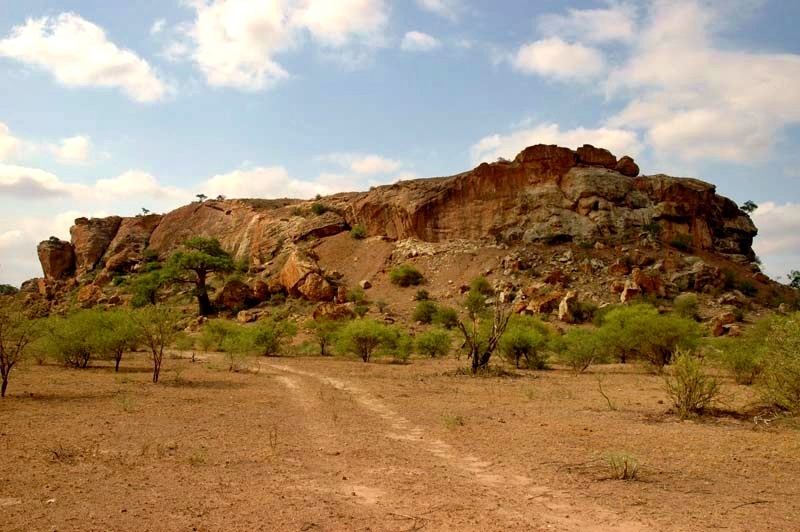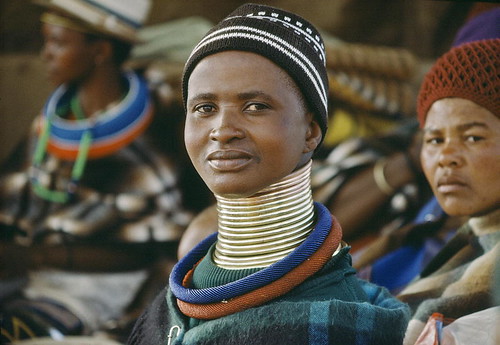Adopting from South Africa
Notice: As of July 14, 2014, all individuals and agencies facilitating international adoptions must be in compliance with the Intercountry Universal Accreditation Act.
Contents
South Africa Adoption Alert
Notice: Adoptions from South Africa to Begin With Approval of U.S. Adoption Service Providers (July 5, 2012)
On June 6, 2012, the Department of State’s Special Advisor for Children’s Issues, Susan Jacobs, and U.S. Consulate General Johannesburg officials met with the South African Ministry of Social Development’s Central Authority (SACA) to clarify South African intercountry adoption procedures. SACA confirmed that it has authorized two U.S. accredited adoption service providers (ASPs) to contract with South African agencies to process Hague Adoption Convention (Convention) adoptions from South Africa to the United States.
The two U.S. ASPs are Bethany Christian Services and Spence-Chapin Services to Families and Children. Both ASPs may now accept applications for adoptions.
SACA also clarified the options available for dual citizens. U.S. citizen prospective adoptive parents residing in the United States must follow the Convention intercountry adoption process if they wish to adopt from South Africa, regardless of whether one or both prospective adoptive parents hold South African citizenship. U.S. citizens resident in South Africa who wish to adopt may be able to conclude a Convention adoption if they plan to bring their adopted child to the United States to live, or may conclude a domesticadoption after meeting South Africa’s five-year residency requirement if they intend to continue residing abroad. In cases where one spouse is a South African citizen, the five-year residency requirement may be waived.
The U.S. Department of State is pleased to have the opportunity to work with South Africa as a Convention partner and to complete Convention intercountry adoptions of eligible children from South Africa by qualified adoptive parents in the United States. Please continue to monitor adoption.state.gov as we update the country information sheet on adoptions from South Africa.
Hague Convention Information
Africa is party to the Hague Convention on Protection of Children and Co-operation in Respect of Intercountry Adoption (Hague Adoption Convention). Therefore all intercountry adoptions between South Africa and the United States must meet the requirements of the Convention and U.S. law implementing the Convention.
South African law recognizes two kinds of adoptions by foreigners:
- 1. Local adoptions of children resident in South Africa by foreign residents of South Africa, and
- 2. Intercountry adoptions of children resident in South Africa by foreign citizens residing abroad.
The first category (“non-Hague adoption”) requires the foreign adoptive parent(s) to be resident for five years in South Africa, and the adoptions are handled by an accredited agency and finalized by the Department of Social Development under laws relating to local adoptions. Note: Under applicable U.S. laws and regulations, children adopted in non-Hague adoptions will only be eligible for immigration to the United States after a waiting period of two years’ residence and two years’ legal custody with the adoptive parent(s).
The second category (“Hague adoption”) is only available to citizens of countries with a working agreement between the prospective adoptive parent’s country of origin and South Africa. As of this writing, there have been no working agreements finalized between South African and U.S. adoption service providers. Please contact the U.S. Consulate Johannesburg Immigrant Visa Unit (contact information below) for the latest information regarding adoption in South Africa.
There have been a number of cases in which American Citizens have been issued “Guardianship Orders” from the South African High Court. These orders do not constitute “irrevocable release for adoption and immigration” as required by United States Immigration Law. As such, they cannot be used for immigration purposes.
NOTE: Special transition provisions apply to adoptions initiated before April 1, 2008. Learn more.
Who Can Adopt
Adoption between the United States and South Africa is governed by the Hague Adoption Convention. Therefore to adopt from South Africa, you must first be found eligible to adopt by the U.S. Government. The U.S. Government agency responsible for making this determination is the Department of Homeland Security, U.S. Citizenship and Immigration Services (USCIS). Learn more.
In addition to these U.S. requirements for prospective adoptive parents, South Africa also has the following requirements for prospective adoptive parents:
Residency
None specified.
Age of Adopting Parents
The adoptive parent(s) must be over the age of 18.
Marriage
None. Both married couples and partners in a life partnership (including same-sex partners) can jointly adopt a child and a single person may also adopt individually or adopt a stepchild following marriage to the child’s biological parent.
Income
There are no specific income requirements for adoption in South Africa. The adoptive parents must satisfy the Commissioner of child welfare that they can support and educate the child before an adoption order is issued.
Other
Eligibility requirements beyond those above change based on the circumstances of the case. In addition, family members will be given preference over non-relatives, regardless of age.
Who Can Be Adopted
Because South Africa is party to the Hague Adoption Convention, children from South Africa must meet the requirements of the Convention in order to be eligible for adoption. For example, the Convention requires that South Africa attempt to place a child with a family in-country before determining that a child is eligible for intercountry adoption. In addition to South Africa’s requirements, a child must meet the definition of a Convention adoptee for you to bring him or her back to the United States.
ELIGIBILITY REQUIREMENTS:
The consent of the child’s biological father, except in cases of rape and incest, must be obtained before a child born out of wedlock is placed for adoption. Unmarried fathers have the right to apply for access, custody or guardianship. Previously, only the consent of the biological mother was required. A married or divorced biological father can prevent his wife or former wife from relinquishing their child(ren) for adoption.
According to South African law, a child born to parents who are not married to each other at the time of birth is considered illegitimate. A child born to unmarried parents becomes legitimate as soon as his/her biological parents marry. Normally, the mother of an illegitimate child is not only the legal guardian of her child, but also has custody even if she herself is still a minor. Only if it is proven that she is unfit to have custody can the child be taken from her and placed in alternative custody. Under current laws, an illegitimate child may take the surname of its father only if the father has formally acknowledged parentage of the child in the birth register. The mother alone has the right to decide the child’s name.
Relinquishment Requirements: If one or both of the child’s parents are alive and can be found, they must both provide written consent to the adoption.
Abandonment Requirements: A child whose parents are both dead or who has been abandoned is available for adoption. In the case of the parents’ death, government-issued death certificates must be obtained to demonstrate the child’s status as an orphan. If the child has been abandoned, some evidence of abandonment may be required.
Age Requirements: The child must be under 18 years of age.
Sibling Requirements: None specified.
Requirements for Special Needs or Medical Conditions: South African law does not require adoption agencies to disclose whether a child is HIV-positive. There is no legal requirement for prospective parents to be tested for HIV; however, adoption agencies may require HIV testing for the child, the natural mother and/or the adoptive parents before proceeding with a placement.
Waiting Period: None specified.
How to Adopt
Adoption Authority
South Africa's Adoption Authority
Department of Social Development
The Process
Because South Africa is party to the Hague Adoption Convention, adopting from South Africa must follow a specific process designed to meet the Convention's requirements. A brief summary of the Convention adoption process is provided below. You must complete these steps in the following order so that your adoption meets all necessary legal requirements. South Africa implemented the Children's Act on April 1, 2010, which formalizes laws and procedures regarding intercountry adoption under the Hague Convention.
NOTE: If you completed a full and final adoption or filed your I-600a or I-600 with USCIS before April 1, 2008, the Hague Adoption Convention may not apply to your adoption. Your adoption could continue to be processed in accordance with the immigration regulations for non-Convention adoptions. Learn more .
- Choose an Accredited Adoption Service Provider
- Apply to be Found Eligible to Adopt
- Be Matched with a Child
- Apply for the Child to be Found Eligible for Immigration to the United States
- Adopt the Child in South Africa
- Bring your Child Home
1. Choose an Accredited Adoption Service Provider:
The first step in adopting a child from South Africa is to select an adoption service provider in the United States that has been Hague-accredited. Only these agencies and attorneys can provide adoption services between the United States and South Africa. South Africa requires that adoption service providers based in the United States also have formal working agreements with accredited counterparts in South Africa. Please contact the U.S. Consulate Johannesburg's Immigrant Visa Unit for the most updated information on which adoption service providers are accredited to provide service in South Africa. Learn more.
2. Apply to be Found Eligible to Adopt:
After you choose an accredited adoption service provider, you apply to be found eligible to adopt (Form I-800A) by the U.S. Government, Department of Homeland Security, U.S. Citizenship and Immigration Services (USCIS) National Benefits Center (NBC). Learn how.
The accredited organization is tasked with identifying a child who is eligible for adoption. After a home study has been completed by an accredited organization, the case is referred to a children’s court for a final hearing.
Once the U.S. government determines that you are “eligible” and “suitable” to adopt, you or your agency will forward your information to the adoption authority in South Africa. South Africa’s adoption authority will review your application to determine whether you are also eligible to adopt under South Africa’s law.
3. Be Matched with a Child:
If both the United States and South Africa determine that you are eligible to adopt, and a child is available for intercountry adoption, the central adoption authority in South Africa may provide you with a referral for a child. Each family must decide for itself whether or not it will be able to meet the needs of the particular child and provide a permanent family placement for the referred child.
An order of adoption terminates all the rights and obligations existing between the child and any prior legally-recognized parents. The adopted child is thereafter deemed by law to be the legitimate child of the adoptive parent(s). The order of adoption confers the surname of the adoptive parent on the adopted child.
4. Apply for the Child to be Found Eligible for Adoption:
After you accept a match with a child, you will apply to the U.S Government, Department of Homeland Security, U.S. Citizenship and Immigration Services (USCIS) for provisional approval to adopt that particular child (Form I-800). USCIS will determine whether the prospective adoptive child qualifies as a Hague adoptee and would be eligible under U.S. law to enter the United States after being adopted abroad. Learn how.
After this, your adoption service provider or you will submit a visa application to a Consular Officer at the U.S. Consulate General in Johannesburg. The Consular Officer will review the child’s information and evaluate the child for possible visa ineligibilities. If the Consular Office determines that the child appears eligible to immigrate to the United States, he/she will notify the South Africa’s adoption authority (Article 5 letter). For Convention country adoptions, prospective adoptive parent(s) may not proceed with the adoption or obtain custody for the purpose of adoption until this takes place.
Remember: The Consular Officer will make a final decision about the immigrant visa later in the adoption process.
5. Adopt the Child in South Africa:
Remember: Before you adopt a child in South Africa, you must have completed the above four steps. Only after completing these steps, can you proceed to finalize the adoption or grant of custody for the purposes of adoption in South Africa.
The process for finalizing the adoption in South Africa generally includes the following:
- ROLE OF THE ADOPTION AUTHORITY: The approval of the Commissioner of Child Welfare, a designated officer of the South African Department of Justice, is required in order for an adoption order to be issued. The Commissioner of Child Welfare will consider the parent(s)’ suitability for adoption and the best interests of the child with the input of a social worker accredited by the Department of Social Development. The Department of Social Development is the central authority for all adoptions.
- ROLE OF THE COURT: After a home study has been completed by an accredited organization, the case is referred to a children's court for the final hearing. An order of adoption terminates all the rights and obligations existing between the child and any prior legally-recognized parents. The order of adoption confers the surname of the adoptive parent on the adopted child.
- ROLE OF ADOPTION AGENCIES: The adoption procedure is initiated by contacting an accredited welfare organization which will identify a child who is eligible for adoption.
- TIME FRAME: It can take up to two years to complete South African adoption requirements.
- ADOPTION APPLICATION: Application of adoption is initiated through an accredited adoption services provider.
- ADOPTION FEES: The U.S. Consulate General discourages the payment of any fees that are not properly receipted. “Donations,” or “expediting” fees, which may be requested from prospective adoptive parents, have the appearance of “buying” a baby and put all future adoptions in South Africa at risk. In the adoption services contract that you sign at the beginning of the adoption process, your agency will itemize the fees and estimated expenses related to your adoption process.
- DOCUMENTS REQUIRED: Due to the South African order of precedence (preferring relatives, then South African citizens, and then foreigners) for adopting orphans, the document requirements can vary from case to case. As a starting point, contact the Commissioner of Child Welfare and the South African Department of Social Development (contact information below).
NOTE: If you are asked to provide proof that a document from the United States is authentic, we can help. Learn how.
6. Bring Your Child Home
Now that your adoption is complete, there are a few more steps to take before you can head home. Specifically, you need to apply for three documents for your child before he or she can travel to the United States:
- 1. Birth Certificate
You will first need to apply for a new birth certificate for your child, so that you can later apply for a passport. Your name will be added to the new birth certificate.
First, the adoption must be recorded in the child’s birth register at any district office of the Department of Home Affairs (www.dha.gov.za). Submit a written request, accompanied by a certified copy of the adoption order. If the adoption order authorizes the change of the child’s surname to that of the adoptive parent(s), this will be completed at the same time on form BI-193. The fee to record an adoption is R70.00 (South African Rand).
Submit a completed BI-154 application form in person to any district office of the Department of Home Affairs. You must request the unabridged or long-form version of the birth certificate, which will list the names, birthdates and birthplaces of both parents along with those of the child. The fee for the unabridged birth certificate is R70.00 and processing can take several weeks.
- 2. South African Passport
Your child is not yet a U.S. citizen, so he/she will need to obtain a South African passport.
Submit a completed DHA-73 application form in person to any district office of the Department of Home Affairs, accompanied by the unabridged birth certificate. The parents must satisfy the passport officer of the child’s identity and their parental relationship to the child. The child’s photographs will be checked to ensure that they are a true image of the applicant. If the child is over 16, his or her fingerprints will be taken for checking against the Population Register. The South African child passport (applicants under 16) is valid for 5 years and the fee is R145.00. The regular passport (applicants over 16) is valid for 10 years and the fee is R190.00 for a 32-page book. Processing time for all passports is approximately six weeks.
- 3. U.S. Immigrant Visa
After the adoption is granted and you have obtained the new birth certificate and passport for your child, you also need to apply for an immigrant visa from the U.S. Consulate General in Johannesburg for your child. This immigrant visa allows your child to travel home with you. As part of this process, the Consular Officer must be provided the “Panel Physician’s” medical report on the child if it was not provided during the provisional approval stage. Learn more. On March 3, 2008, the U.S. Consulate General in Johannesburg, South Africa’s panel physicians began using the Center for Disease Control and Prevention’s (CDC) 2007 Tuberculosis Technical Instructions (TB TIs) for the TB medical screening for all immigrant visa applicants from South Africa, Botswana, Mozambique, Namibia, and Swaziland, including adopted children. The 2007 TB TIs include new requirements that affect the pace at which some adoption cases can be concluded. Please visit the CDC’s website for further information regarding the 2007 Technical Instructions for Tuberculosis Screening and Treatment for Panel Physicians.
The following additional documents are required for children who are fully adopted under South African law:
- 1. The child’s original, unabridged birth certificate, showing the new adoptive parents’ names;
- 2. Evidence that the child meets the definition of Convention Adoptee;
- 3. A final decree of adoption reflecting that both spouses (prospective adoptive parents) were parties to the adoption;
- 4. Evidence of compliance with all relevant South African regulations
- 5. A passport issued in the child’s correct, current name; and
- 6. The child’s medical examination completed by one of the Consulate’s approved panel physicians.
NOTE: If all required documents are in order and the child is qualified for the visa, it generally takes between 2-3 days to issue the visa. Unfortunately, it is not possible to issue the visa to adoptive parents on the day of the interview due to security procedures.
Child Citizenship Act
For adoptions finalized abroad: The Child Citizenship Act of 2000 allows your child to acquire U.S. citizenship automatically when he or she enters the United States on an IH-3 immigrant visa. You may then apply for your child’s U.S. passport by following the instructions at http://travel.state.gov (see “Traveling Abroad” below for more information).
For adoptions to be finalized in the United States: The Child Citizenship Act of 2000 allows children who entered the U.S. on an IH-4 immigrant visa to acquire U.S. citizenship when the U.S. state court issues the final adoption decree. We urge your family to finalize the adoption in a U.S. state court as quickly as possible.
Please be aware that if your child did not qualify to become a citizen upon entry to the United States, it is very important that you take the steps necessary so that your child does qualify as soon as possible. Failure to obtain citizenship for your child can impact many areas of his/her life including family travel, eligibility for education and education grants, and voting.
Learn more about the Child Citizenship Act.
Traveling Abroad
Applying for Your U.S. Passport
A valid U.S. passport is required to enter and leave South Africa. Only the U.S. Department of State has the authority to grant, issue, or verify U.S. passports. Getting or renewing a passport is easy. The Passport Application Wizard will help you determine which passport form you need, help you to complete the form online, estimate your payment, and generate the form for you to print-all in one place.
Obtaining Your Visa
In addition to a U.S. passport, you also need to obtain a visa. A visa is an official document issued by a foreign country that formally allows you to visit. Where required, visas are attached to your passport and allow you to enter a foreign nation. To find information about obtaining a visa for South Africa, see the Department of State's Country Specific Information.
Staying Safe on Your Trip
Before you travel, it's always a good practice to investigate the local conditions, laws, political landscape, and culture of the country. The State Department is a good place to start. The Department of State provides Country Specific Information for every country of the world about various issues, including the health conditions, crime, unusual currency or entry requirements, and any areas of instability.
Staying in Touch on Your Trip
When traveling during the adoption process, we encourage you to register your trip with the Department of State. Travel registration makes it possible to contact you if necessary. Whether there's a family emergency in the United States, or a crisis in South Africa, registration assists the U.S. Embassy or Consulate in reaching you. Registration is free and can be done online.
After Adoption
What resources are available to assist families after the adoption?
Many adoptive parents find it important to find support after the adoption. Take advantage of all the resources available to your family -- whether it's another adoptive family, a support group, an advocacy organization, or your religious or community services.
Here are some good places to start your support group search:
Child Welfare Information Gateway
North American Council on Adoptable Children
Adoption Services Support Group for Adopting Persons
Contact Information
U.S. Consulate in South Africa
U.S. Consulate General 1 Sandton Drive Sandhurst 2196 Johannesburg Tel: 27-11-290-3000 Fax: 27-11-884-0396
The Consulate in Johannesburg handles all consular matters, including immigrant visas, for Pretoria. The United States also has Consulates General in Cape Town and Durban; however these offices do not process immigrant visas.
South Africa’s Adoption Authority
Department of Social Development Registrar of Adoptions Private Bag X901 Pretoria 0001, South Africa Tel: 27-12-312-7592 Fax: 27-12-312-7837
Commissioner of Child Welfare
Private Bag X61 Pretoria 0001, South Africa Tel: 27-12-328-4026 Fax: 27-12-321-8124
Embassy of South Africa
Embassy of the Republic of South Africa 3051 Massachusetts Avenue, NW Washington , DC 20008 Tel: 202-232-4400
South Africa also has Consulates in Chicago, Los Angeles and New York.
Office of Children’s Issues
U.S. Department of State CA/OCS/CI SA-17, 9th Floor Washington, DC 20522-1709 Tel: 1-888-407-4747 E-mail: AskCI@state.gov
SOURCE
Intercountry Adoption, Bureau of Consular Affairs. U.S. Department of State Country Information[1]










